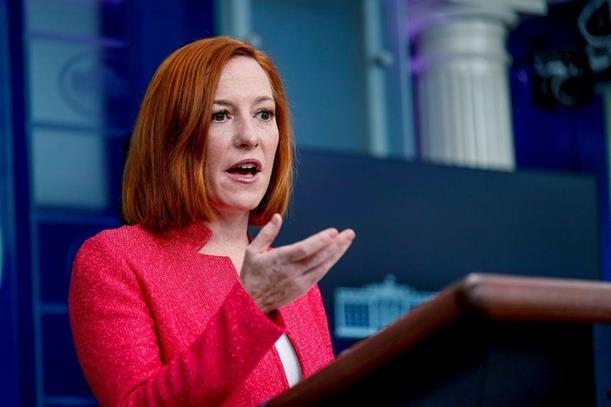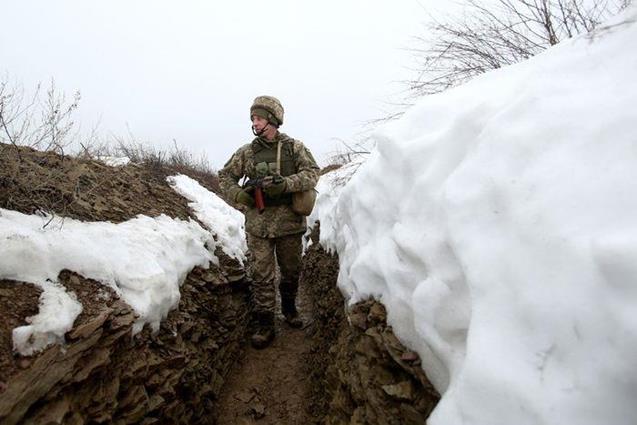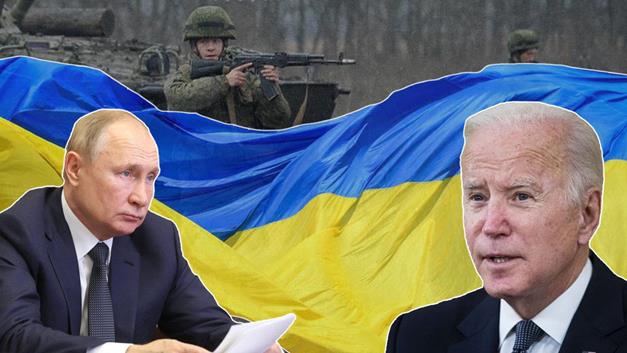White House Says Russia Is Planning
False Flag
' Operation as Pretext for Invading Ukraine
Press secretary Jen Psaki says the U.S. sees signs an invasion could come in a matter of weeks

White House press secretary Jen Psaki, at the White House on Friday, said Russian officials and
influence actors
' had sought to spread misinformation about Ukraine.
WASHINGTON
Russia has deployed operatives to undertake a “false flag” operation in Eastern Ukraine that would fabricate a pretext for invading the country, the White House said Friday, warning
it saw signs an invasion could come in a matter of weeks.
“The operatives are trained in urban warfare and in using explosives to carry out acts of sabotage against Russia's
proxy forces,” White House press secretary Jen Psaki said at the White House.
Ms. Psaki's statement came after the U.S. and its European allies concluded
a week of ultimately fruitless diplomacy with Russia aimed at
easing tensions in Ukraine. Russia has deployed more than 100,000 troops
along the border with Ukraine and has been moving tanks, infantry fighting vehicles,
rocket launchers and other military equipment westward from their
bases in its Far East, according to U.S. officials and social-media reports.
The movements of troops and materiel have prompted fears in the U.S. and the West that it intends to invade, or that Russian President
Vladimir Putin
is generating a crisis to extract security concessions from the North Atlantic Treaty Organization.
The Russian Embassy in Washington didn't immediately respond to a request for comment.
Russian officials have denied the country intends to invade Ukraine and says its troops are near the border on exercises. Russia says it has the right to move troops about on its own territory.

A Ukrainian Military Forces serviceman on the front line with Russia-backed separatists in the Donetsk region on Tuesday.
Photo: anatolii stepanov/Agence France-Presse/Getty Images
In Washington on Friday, Ms. Psaki said Russian officials and “influence actors” had sought to spread misinformation about Ukraine to encourage domestic Russian support for
military action there.
“These media narratives also blame the West for escalating tension, highlight humanitarian issues in Ukraine that Russian intervention could solve and promote Russian patriotism
to encourage domestic support for military action,” she said, reporting a 200% increase in the daily average of Russian-language content on such narratives from November to December.
She and other White House officials have pointed to Russia's 2014 invasion and annexation
of the Crimean Peninsula and its fomenting of a separatist war in Eastern Ukraine, warning they are seeing the same signs of imminent conflict.
“We've seen this before, we saw this before leading up to 2014…including sabotage activities
and information operations,” she said. “And the Russian military plans to begin these activities several weeks before a military invasion, which could begin between mid-January and mid-February.”
The White House's announcement follows a week of diplomatic engagements that have done
little to defuse tensions. Russian Foreign Minister Sergei Lavrov warned Friday that Moscow is running out of patience with the U.S. and
pressed Washington for a response to its demands that the West
stop encroaching on what the Kremlin views as its traditional sphere of influence. Western nations have characterized Russia's demands as nonstarters.
On Monday, U.S. and Russian officials
held bilateral security talks in Geneva
, but both sides said the discussions had failed to narrow the gap between the sides.
What's Next for U.S. and Russia as Tensions Grow Over Ukraine

What's Next for U.S. and Russia as Tensions Grow Over Ukraine
A military buildup along the Ukrainian border is further straining ties between Russia and the U.S., after clashes over cybercrime, expulsions of diplomats and a migrant crisis
in Belarus. WSJ explains what is deepening the rift between Washington and Moscow. Photo Composite/Video: Michelle Inez Simon
Two days later,
NATO and Russia held their first talks
since 2019, with Moscow continuing to demand that the alliance scale back military activities in former Soviet states and deny membership to Ukraine and Georgia, which Russia
considers part of its sphere of influence. NATO members have roundly rejected these demands.
Then on Thursday, the Organization for Security and Cooperation in Europe, which counts the U.S., Ukraine and Russia among its 57 members, met to discuss the situation. Russian
Deputy Foreign Minister Sergei Ryabkov said talks had stalled and raised the specter of
a military deployment to Venezuela or Cuba
, a prospect Mr. Sullivan characterized as “bluster” but which he said the U.S. would handle “decisively.”
Mr. Sullivan said Thursday that U.S. and European officials would confer on the path forward, but that prospects for further discussions with Russia were unclear.
Write to
Andrew Restuccia at
andrew.restuccia@wsj.com
and Courtney McBride at
courtney.mcbride@wsj.com
Copyright ©2022 Dow Jones & Company, Inc. All Rights Reserved. 87990cbe856818d5eddac44c7b1cdeb8